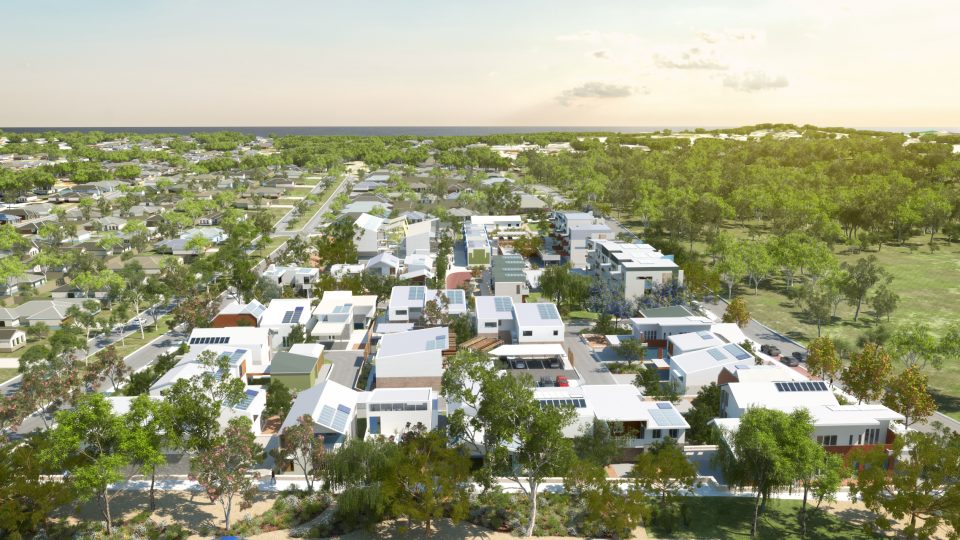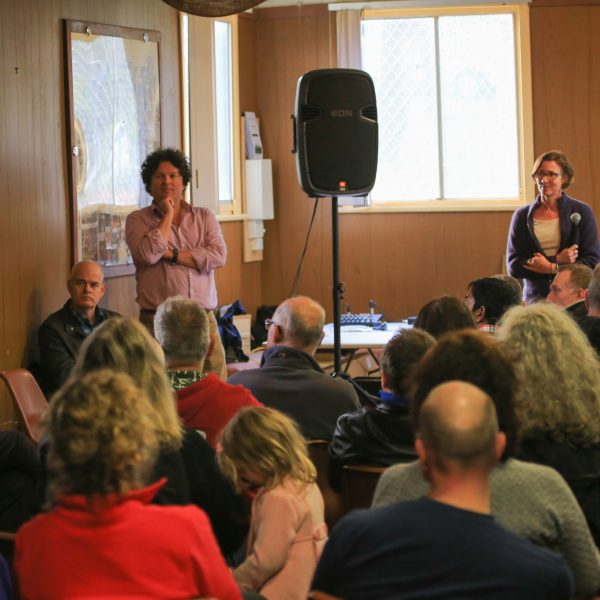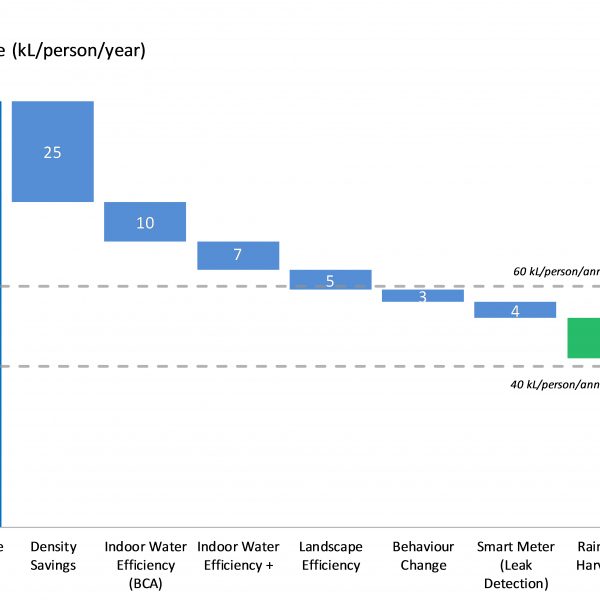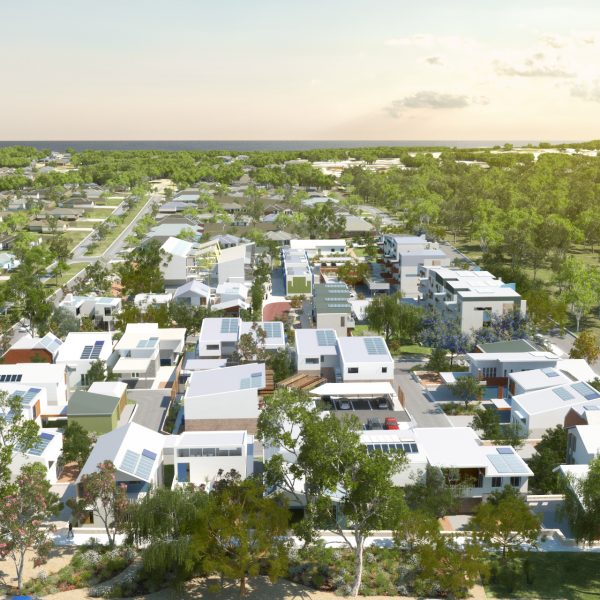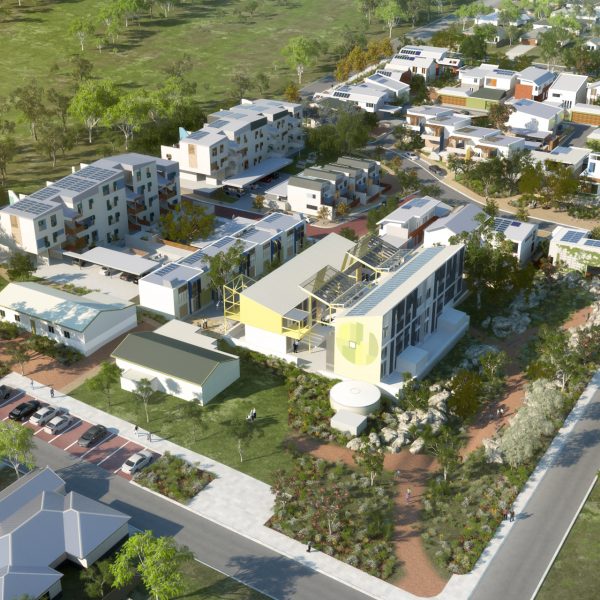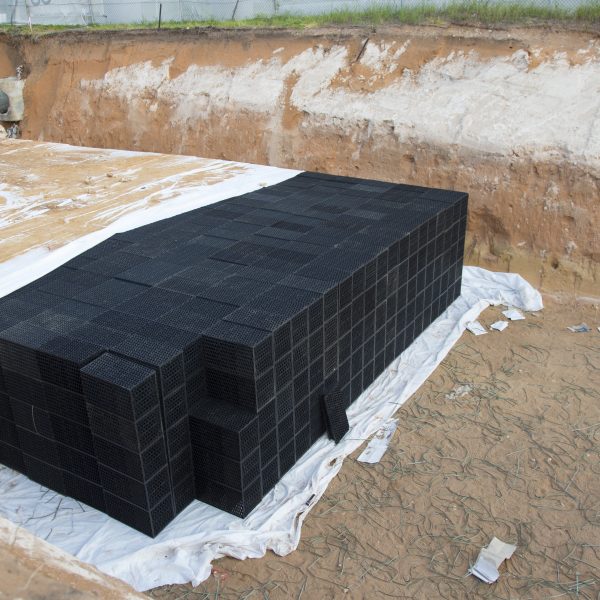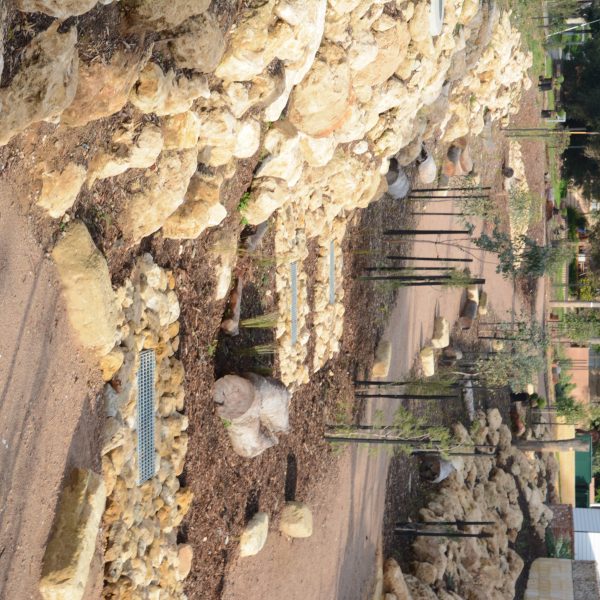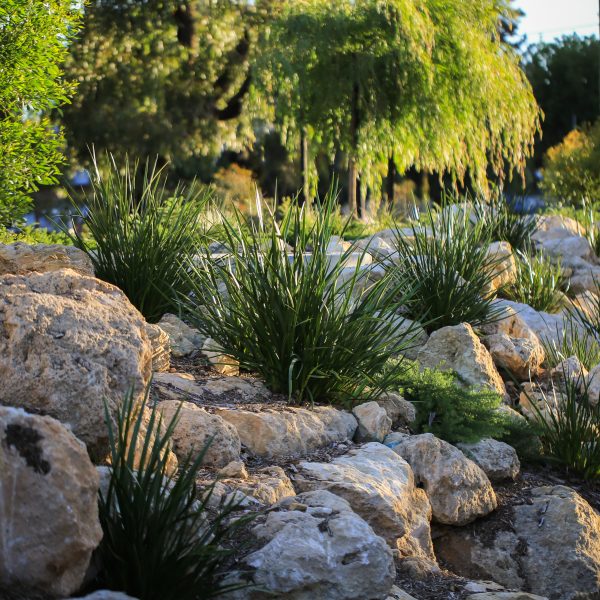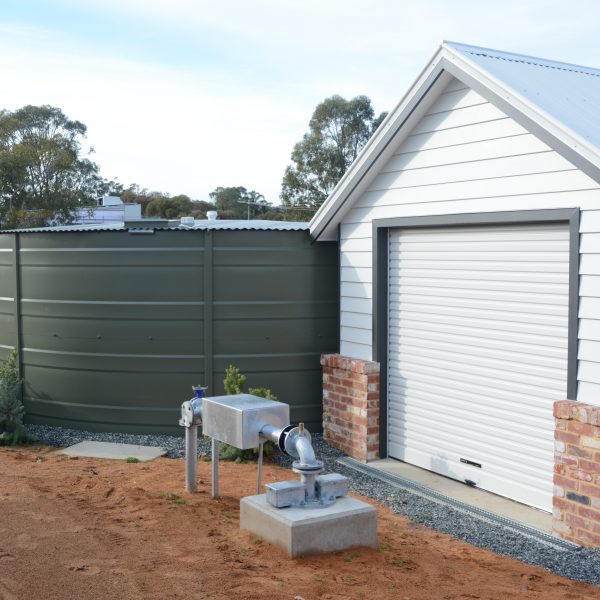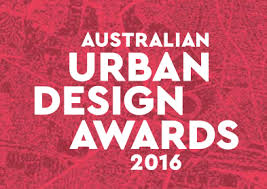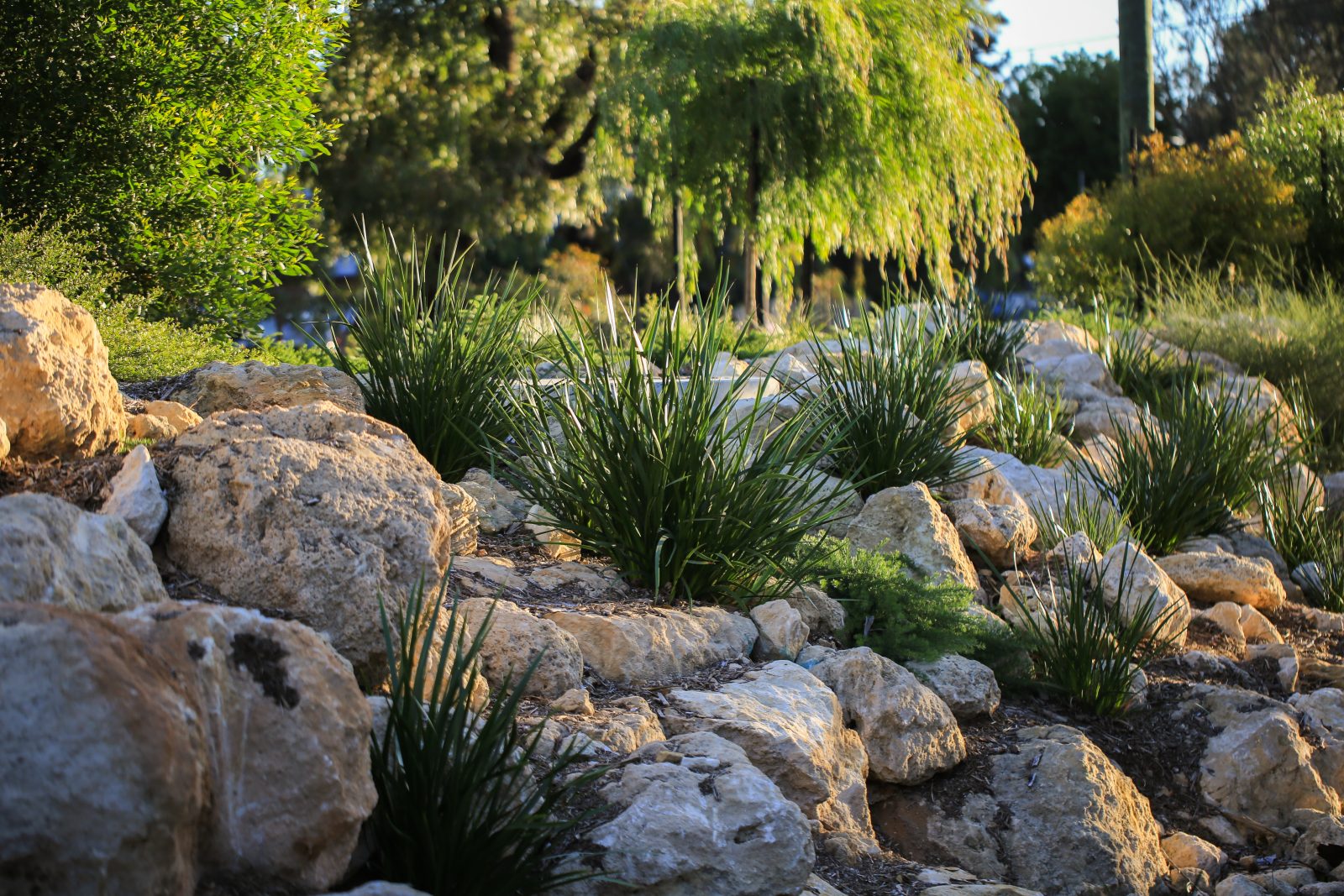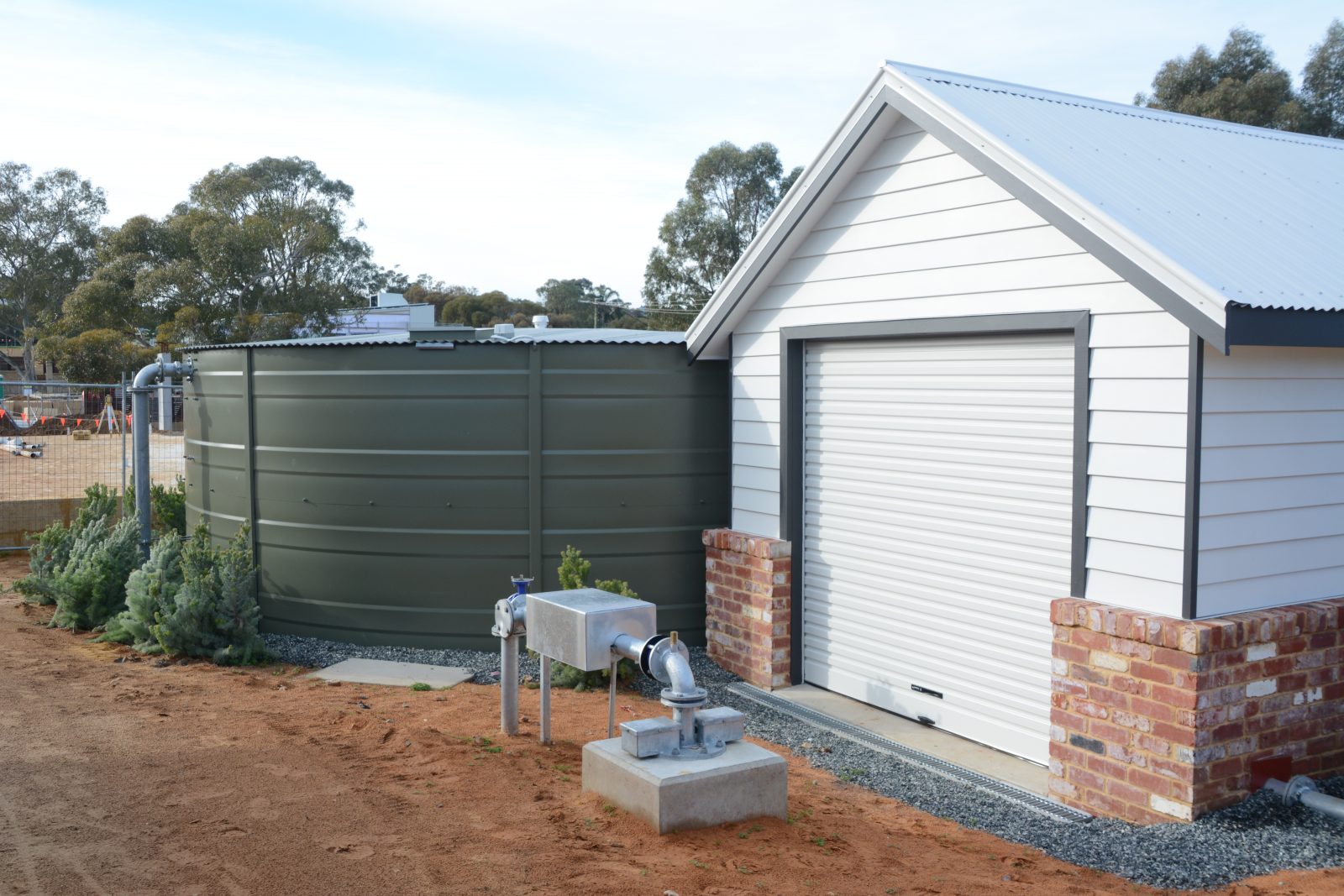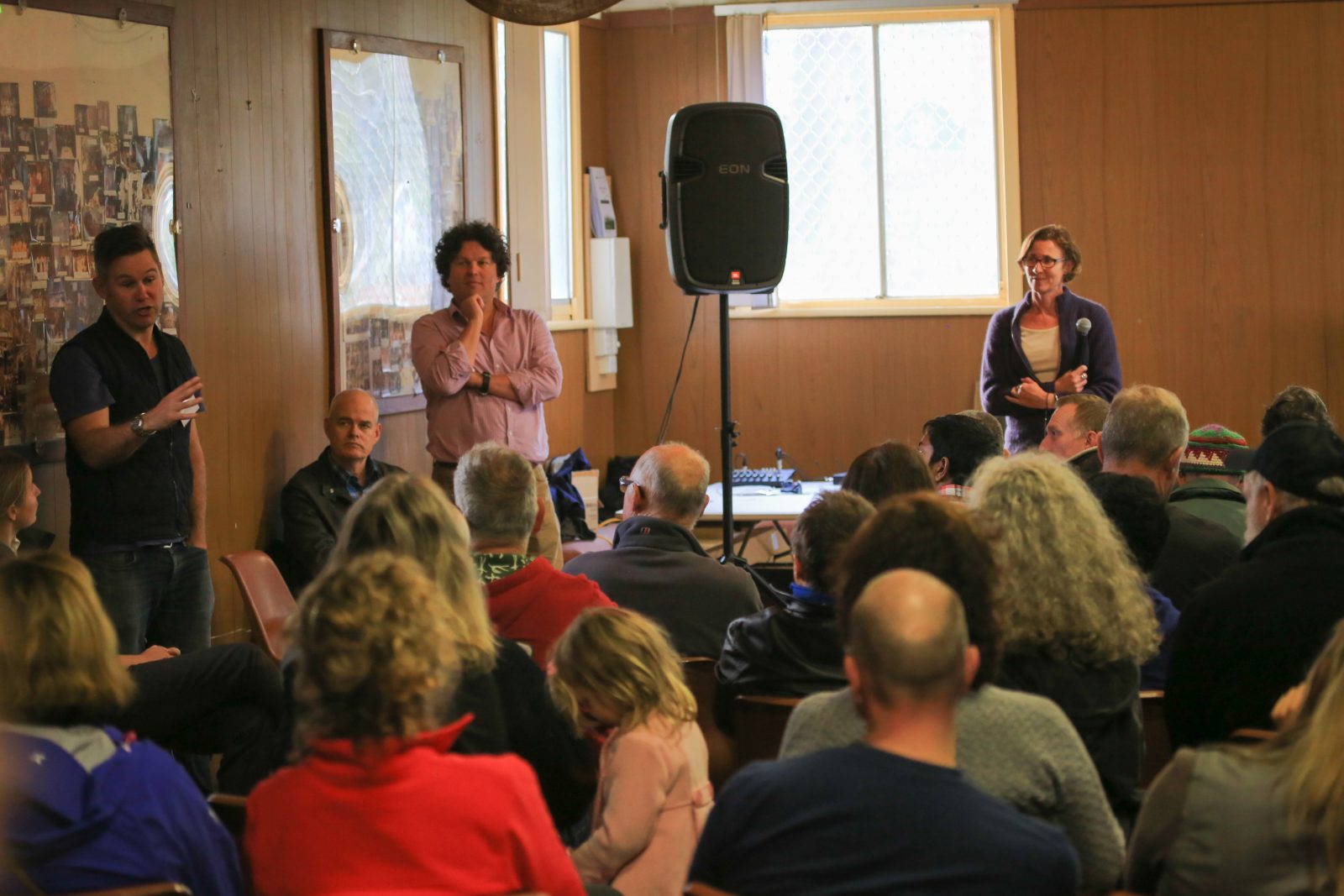Contact
Insight:
Setting a new standard for waterwise development in WA, White Gum Valley includes a communal groundwater irrigation system, lot scale rainwater harvesting and demonstrates how to transform a infiltration basin eyesore into a sought-after public space.
The drivers
A perfect opportunity to try a new way of developing
- Community ambition for a new housing model:
The community supported the delivery of a new model of medium density housing in the area to support changing needs of younger and older residents. - Innovation embedded in the developer's approach:
LandCorp used White Gum Valley as an opportunity to drive innovation through demonstration, and to pilot the use of the One Planet Living sustainability framework to a development site for the first time in WA. - Alignment of stakeholder ambitions:
A number of initiatives and ambitions came together from key stakeholders, with City of Fremantle wishing to demonstrate their own commitment to One Planet Living, the Water Corporation looking for a demonstration site for their waterwise development programme and the sustainability ambitions of the project consultants and housebuilders.
The innovations
Taking every opportunity to demonstrate
- Waterwise homes:
Homes in the WGV development will use 60-70% less potable water than an average home in Perth. Initiatives include water efficiency measures, use of rainwater tanks for internal uses, and use of a groundwater bore for garden irrigation. - Community bore: By seeking a special exclusion, the local council will be able to operate a community bore to provide groundwater to local residents for irrigation purposes as well as for use on public open spaces.
- Landscaped infiltration basin:
Join investments by LandCorp and the City of Fremantle supported the conversion of a typical infiltration basin or sump on site to a publicly accessible landscape by creating water storage cells underground so that water can slowly soak into the ground.
The method
Collaboration and ongoing research
The CRC for Water Sensitive Cities and the CRC for Low Carbon Living are both ongoing research collaborators on the site, providing support for ongoing metering and monitoring of energy and water use.
The lessons
A commitment to sustainability can drive sales
- Sustainability accreditation created credibility and reputation: The use of the One Planet Living and Waterwise frameworks provided an easily communicable and credible way to measure achievements, helping to support the development of a reputation and ultimately improve sales.
- A new model for development can be delivered through collaboration: By taking opportunities to innovate at every stage, WGV represents a new model of development for the area, which residents and the community have bought into.
- Buyer education is an ongoing activity: Demonstration hasn't ended at the site, as the site will be used as a living laboratory for ongoing monitoring and community education. The legacy of this will be a change in thinking and behaviours of residents themselves.
- Leadership is needed to drive change: Individual champions within stakeholder organisations and the consultant groups for the project drove change through persistence and determination. Often the acts of individuals and their willingness to challenge the norm are more important than policy changes or corporate commitments.
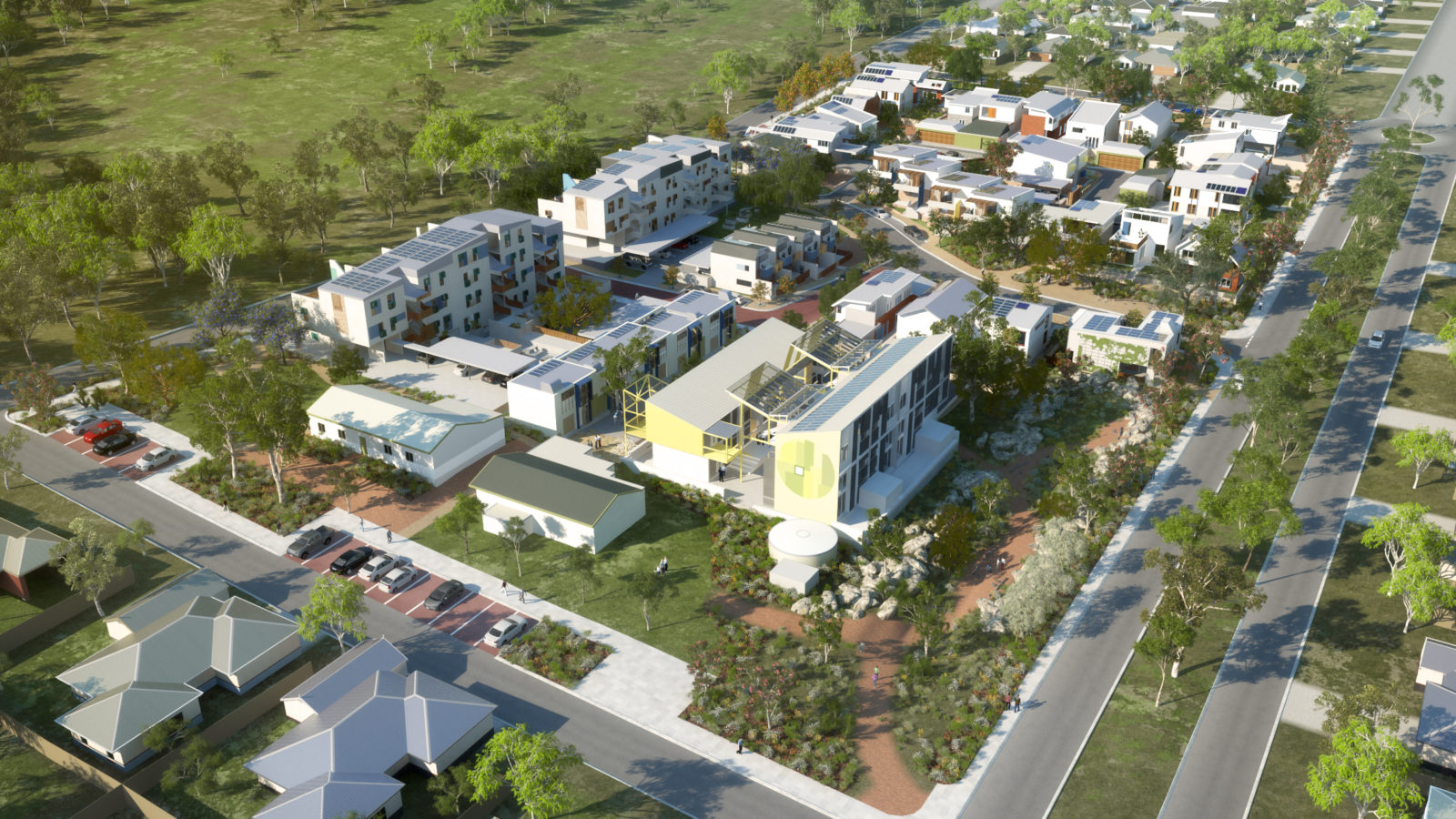
Project stats
Location
White Gum Valley, Western Australia, Australia
Dates
2008 – Present
Participants
Topics
Contact
Awards

- Planning Institute of Australia award for excellence: Best Planning Ideas - Small Project (WA)
- Planning Institute of Australia award for excellence: Planning Minister’s Award
- Planning Institute of Australia’s National award: Best Planning Ideas - Small Project
- Finalist in the 2016 Banksia Sustainability Awards
The outcomes
 Cities providing ecosystem services
Cities providing ecosystem services

- A 2000m3 infiltration basin is converted to a community landscape, providing amenity, habitat and canopy cover.
- The landscape is being designed to incorporate water sensitive urban design and water efficiency measures to enhance amenity and microclimate in a Perth climate.
- Four trial street trees incorporated passive infiltration from road runoff.
 Cities as water supply catchments
Cities as water supply catchments

- The site demonstrates waterwise principles, driving an expected 60-70% reduction in potable water use in homes in the development compared with the average Perth household.
- Alternative water sources are supplied for open space irrigation, garden irrigation (groundwater) and indoor toilet and laundry use (rainwater).
 Cities comprising water sensitive communities
Cities comprising water sensitive communities

- Real-time monitoring of household water use will promote understanding of water use patterns and assist in future learning.
- Communities buy in to sustainability features on-site through compliance with design guidelines and incentivised investment in water and energy measures for their home.
- Home builders use sustainability as a selling point.
Interested in this solution?
We partner with small and large companies, government and industry in Australia and around the world.
